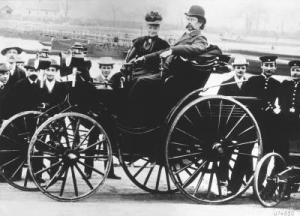Continuous Conflicts
Leave a commentOctober 6, 2014 by rayanardati
The conflict between science and religion is ongoing. Most conflicts that revolve around design, the way we use our natural resources and how we go about our day to day activities are due to the consideration of ethical implications. Here is an extract from the reading ‘Lesson Seven The Role of Science in Environmental Ethics’ by Keith Douglass Warner OFM, with David DeCosse from Santa Clara University which assisted with explaining the difference;
“But the “exclusion” of human values from the scientific method – which might bias the results – also means that its products are considered by most people to be amoral, in other words, neither ethical nor unethical. This has resulted in the widespread perception that scientific and technological developments should continue without considering the ethical implications of their products. The scientific method attempts to be free of bias, but the technological products of science have tremendous implications for social and environmental ethics.”
(Keith Douglass Warner OFM, with David DeCosse, 2009)
This reading explains that scientists and ethicists are from separate disciplines. They have been divided between facts and values. By combining science and conscience it prompts more care for people and the environment and due to the fact that it is the morality of people that triggers this caring nature it stimulates the question of whether it is just a religious concern (Roger S. Gottlieb, 2006). Without the bias of beliefs and previous opinions, scientists are able to conclude facts from research and experiments undertaken. Although science can bring us great benefits it cannot teach us one thing, which is how to value the environment. It is seen through the world’s religions, especially throughout history, that nature has ‘intrinsic value as gods creation’ (Keith Douglass Warner OFM, with David DeCosse, 2009) and we have a religious obligation to care for the Earth and its creatures. It is important to remember that science and religion are two separate things, however, the scientific process and ethics will always go hand in hand causing debate.
Science and design in technology have brought great wealth and material comfort for society but not without negative repercussions. These negative impacts have been at the expense of mainly the environment which conflicts with people’s ethical consciousness. Karl Benz, the designer of the first true automobile in 1886 was a three-wheeled Motor car which ran on gas (Lauren Cox, 2013). The automobile itself has revolutionized transport and created great convenience but to accompany such advancement in technology drastic changes to the environment have occurred; paving over extensive amounts of fertile farmland for roads. Also, burning of fossil fuels, such as oil and gas, have a significant impact in the disruption of our atmosphere and contribute to the process of climate change due to carbon dioxide emissions, yet they have made all method of industry and devices possible (Douglas Ezzy, 2004) (Bill Devall & George Sessions, 1985).

It can be concluded that practically every technology will carry a risk but it is up to society to decide and assess whether that technology is suitable enough to implement and work with the repercussions. Due to this continuous processes there will always be a conflict between science and religion. As long as scientists continue to discover and design better technologies, it will affect the moral thinking of ethicists and religions, especially in regards to the issue of the environment.
Reference List: Douglas Ezzy, 2004, ‘Controversies in Environmental Sociology’, Cambridge University Press, Tasmania, viewed 8th September 2014 <http://www.academia.edu/3029183/Old_traditions_and_new_ages_religions_and_environments>
Keith Douglass Warner OFM, with David DeCosse, 2009, ‘Lesson Ten Religious Environmental Ethics’, Santa Clara University, Silicon Valley, viewed 7th September 2014 <http://www.scu.edu/ethics/practicing/focusareas/environmental_ethics/lesson10.html>
Keith Douglass Warner OFM, with David DeCosse, 2009, ‘Lesson Seven The Role of Science in Environmental Ethics’, Santa Clara University, Silicon Valley, viewed 7th September 2014 <http://www.scu.edu/ethics/practicing/focusareas/environmental_ethics/lesson7.html>
Roger S. Gottlieb, 2006, ‘Science and Religion in the Fact of the Environmental Crisis’, The Oxford Handbook of Religion and Ecology, New York and Oxford: Oxford University Press, viewed 9th September 2014 <http://lamar.colostate.edu/~rolston/Sci-Rel-Face.pdf>
Lauren Cox, 2013, ‘Who Invented the Car?’, Live Science, viewed 9th September 2014 <http://www.livescience.com/37538-who-invented-the-car.html> Bill Devall & George Sessions, 1985, ‘Deep Ecology: Living as if nature mattered’, Layton, Utah, 9th September 2014